You might be the dumbest retard of the bunch. A white asian mare, can onry commit a hate crime against another white if they’re a faggot.. ooooooooh that’s why it was a hate crime. My bad fag.You don’t have to be black to commit a hate crime. You’re not very smart for an Asian.
Don’t worry about it either way. My life is never going to fall to shit so badly that I would end up on the east side of Cleveland with you.
You are using an out of date browser. It may not display this or other websites correctly.
You should upgrade or use an alternative browser.
You should upgrade or use an alternative browser.
University of Michigan cheating scandal || Staffer caught trying to meet 13 year old girl
- Thread starter Jake Broe Stan
- Start date
“another white”You might be the dumbest retard of the bunch. A white asian mare, can onry commit a hate crime against another white if they’re a faggot.. ooooooooh that’s why it was a hate crime. My bad fag.
As if Asians are white
Apparently other teams and coaches were in on the scandal. This is getting ridiculous!
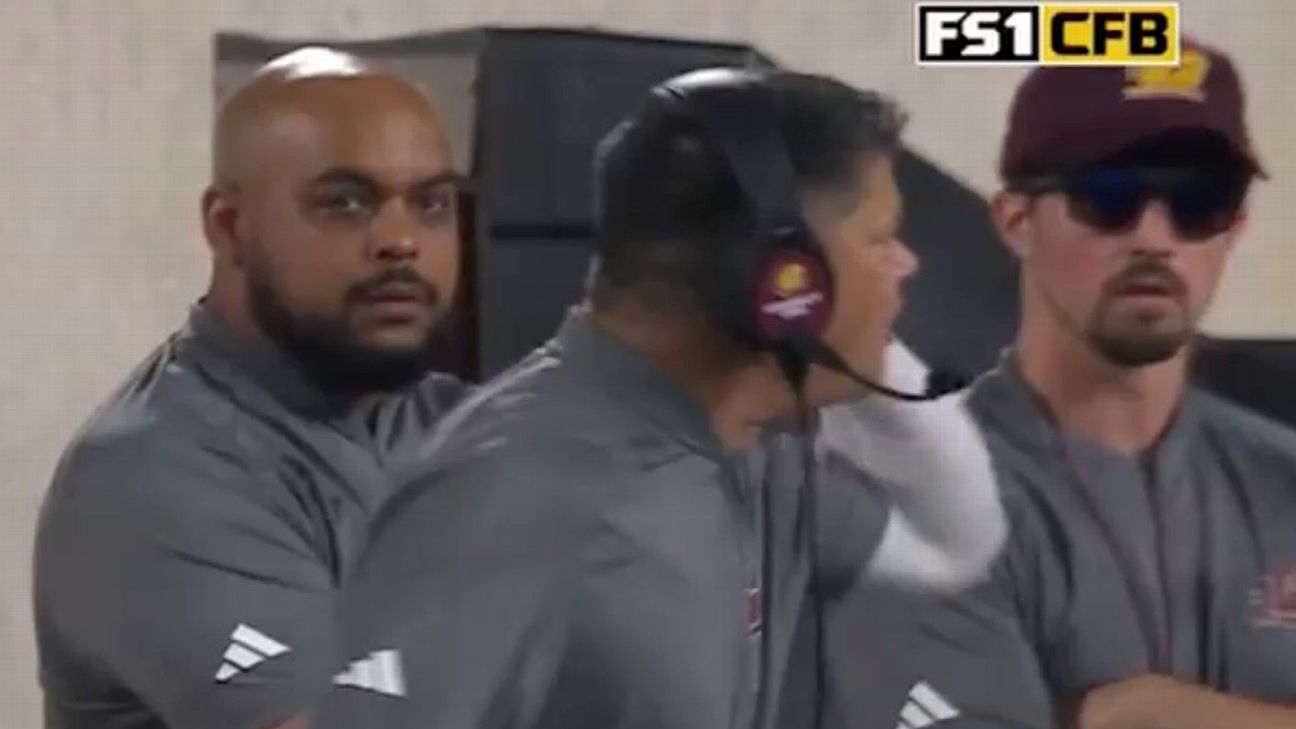
 www.espn.com
www.espn.com

CMU probes Stalions' potential sideline presence
Central Michigan is investigating photos that show a man resembling Michigan's Connor Stalions on its sideline for the Sept. 1 game at Michigan State.
This is getting really bad for UM.
I want to punch you in your row hanging rabia, that you pretend in your big fat fucking head are barrs. You’re the onry faggot that courd possibry make me rethink Michigan getting the death penarty. Ruckiry im a better Buckeye fan than Asian and stirr hope Michigans gets brasted back to the Rrrrrroyd Carr days.
This is getting really bad for UM.
Fuck ohioI want to punch you in your row hanging rabia, that you pretend in your big fat fucking head are barrs. You’re the onry faggot that courd possibry make me rethink Michigan getting the death penarty. Ruckiry im a better Buckeye fan than Asian and stirr hope Michigans gets brasted back to the Rrrrrroyd Carr days.
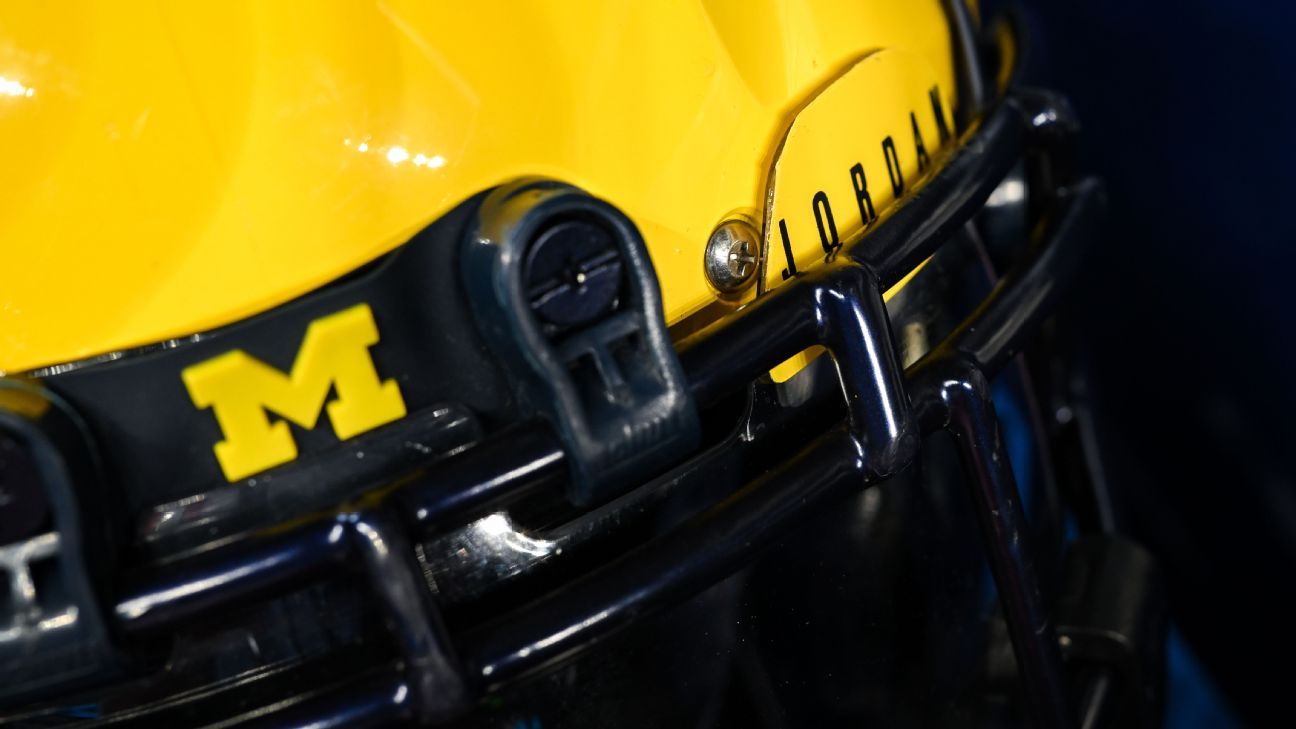
Sources: Big Ten coaches urge action vs. U-M
A vast majority of the Big Ten coaches expressed their frustrations with the ongoing signal-stealing investigation at Michigan in a video call with commissioner Tony Petitti on Wednesday, sources told ESPN.
A vast majority of the Big Ten coaches expressed their frustrations with the ongoing signal-stealing investigation at Michigan in a video call with commissioner Tony Petitti on Wednesday, sources told ESPN.
The call, which took 90 minutes, included nearly an hour without Michigan coach Jim Harbaugh, who hung up after the regularly scheduled Big Ten business to allow the conference's coaches to speak freely about the NCAA's investigation into Michigan.
According to five sources familiar with the call, a chorus of voices encouraged Petitti to take action against Michigan in a call that was described as both intense and emotional.
"Collectively, the coaches want the Big Ten to act -- right now," said a source familiar with the call. "What are we waiting on? We know what happened."
The NCAA has been investigating Michigan for nearly two weeks, as the Big Ten confirmed the NCAA's sign-stealing investigation on Oct. 19. Since that time, ESPN has reported that Michigan staffer Connor Stalions emerged as a centerpiece of the investigation and has purchased tickets to the games of 12 of 13 Big Ten opponents over the last three years.
Overall, Stalions has purchased tickets to more than 35 games in at least 17 stadiums over the last three years, ESPN reported. Michigan suspended Stalions the same day ESPN reported he was the center of the investigation. A former Division III coach also told ESPN he was paid by Stalions to video games at multiple Big Ten schools.
The coaches in the Big Ten laid out to Petitti, who was hired in April, just how distinct of a schematic advantage Michigan has held the last three years by illegally obtaining the opposition's signals ahead of time, as has been alleged.
Coaches used words like "tainted," "fraudulent" and "unprecedented" on the call to describe Michigan's signal-stealing scheme, as has been alleged. Much of the call, according to sources, was coaches explaining to Petitti both how it worked and how it impacted them and their programs. Both in-person opponent scouting and using electronic equipment to steal signals are not allowed by NCAA rules.
In the three years that Stalions left a paper trail of purchasing tickets to games of Michigan opponents, the Wolverines have gone 33-3 overall and 22-1 in Big Ten play. In the prior three years, they were 21-11 overall and 16-8 in league play.
"People don't understand the seriousness of it," said another source. "How it truly impacted the game plan. To truly know if it's a run or a pass, people don't understand how much of an advantage that was for Michigan."
There was anger interspersed throughout the call, as one source described the sentiment as: "Every game they played is tainted."
The coaches acknowledged the reality on the call that the NCAA enforcement timeline won't impact Michigan this season, as the Wolverines are 8-0 and No. 3 in the initial College Football Playoff rankings. And that's one reason the Big Ten coaches called on action from the Big Ten.
Sources described Petitti as listening carefully to the coaches, but not tipping his hand in what direction he may go. Sources expressed curiosity as to whether the Big Ten is truly interested in taking action or just listening to coaches so they can be heard.
The Big Ten technically has authority under its Sportsmanship Policy to punish Michigan or members of the coaching staff.
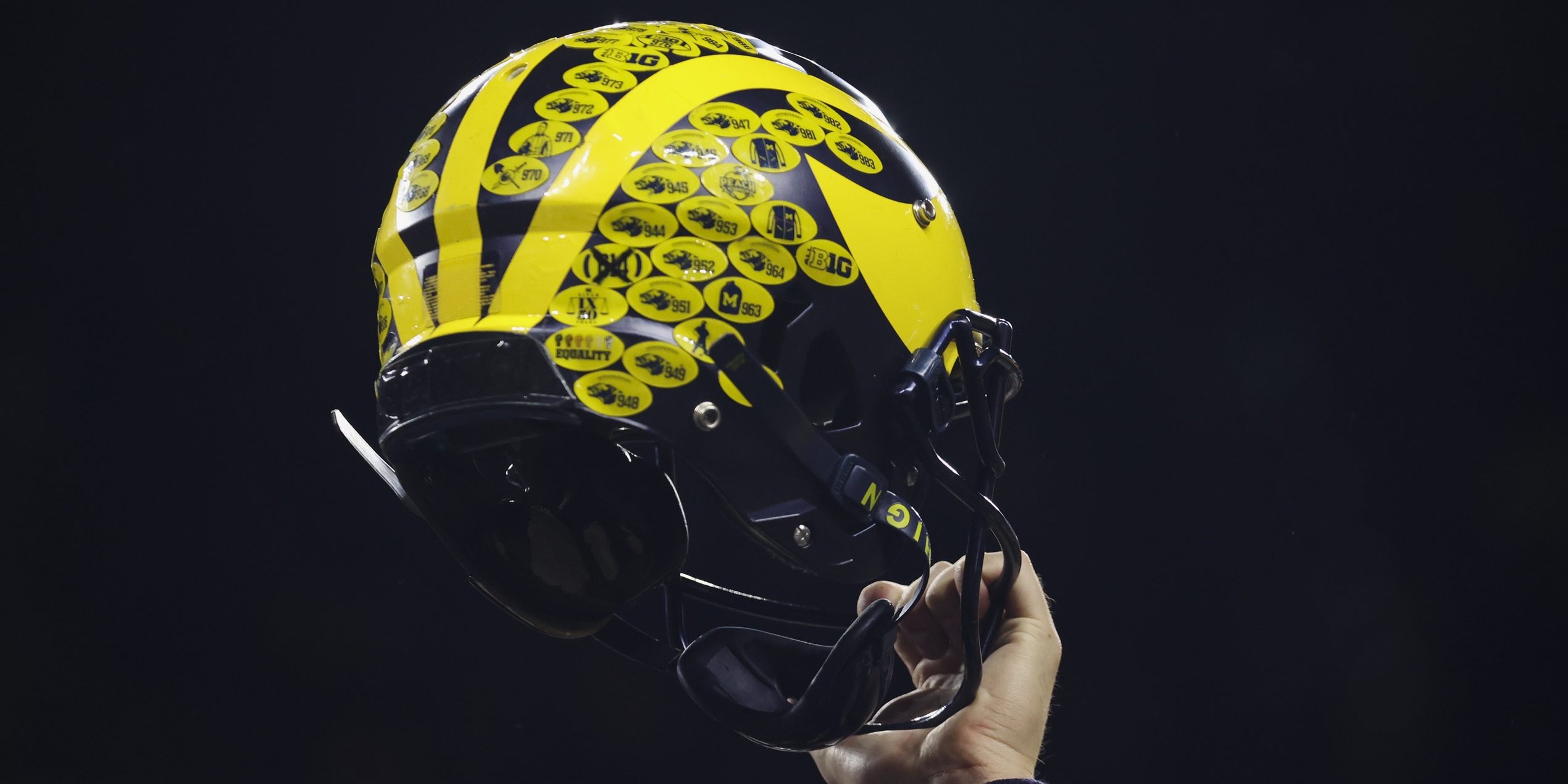
Michigan staff member fired over horrific reason
A low level Michigan football staffer was reportedly fired after appearing in a video in which he was allegedly attempting to solicit a teen.
thecomeback.com
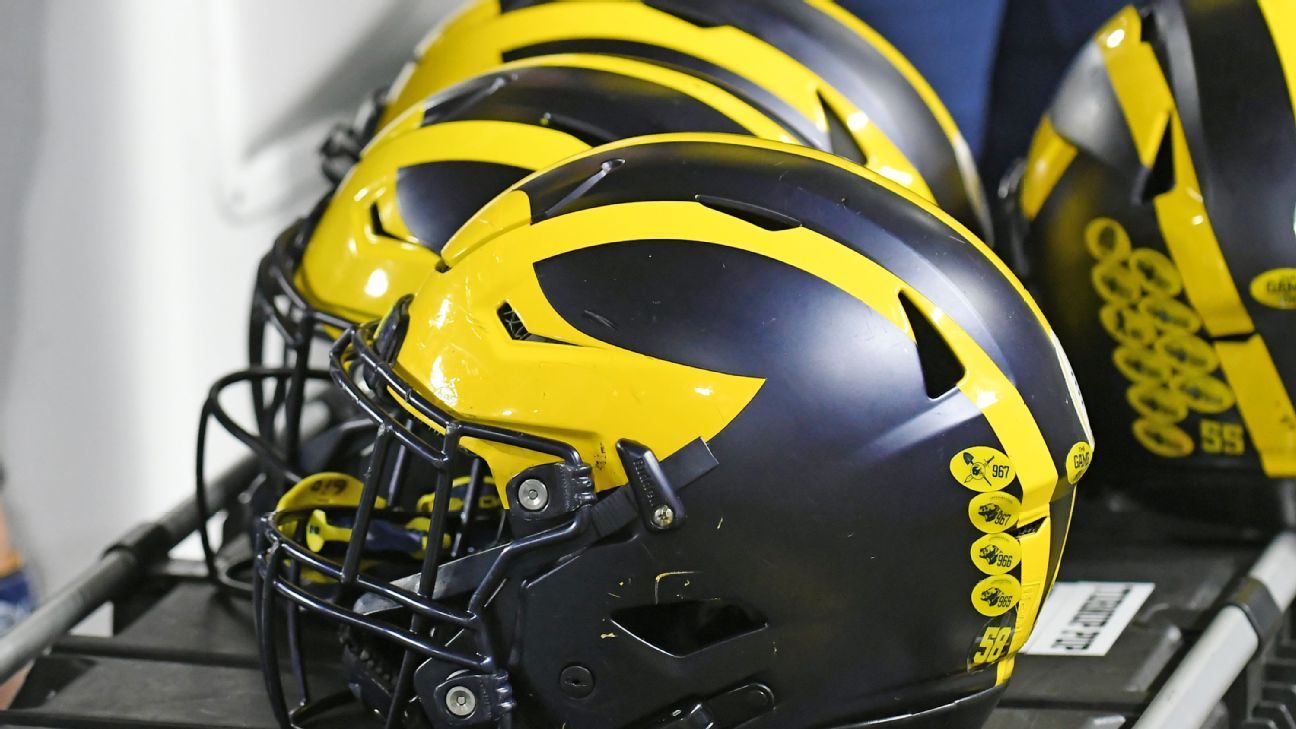
Sources: ADs tell commish Big Ten must 'step up'
Big Ten athletic directors had a video call with commissioner Tony Petitti on Thursday about Michigan's alleged sign-stealing operation, and while they sought action from the conference, they also made clear their support for Petitti, sources said.
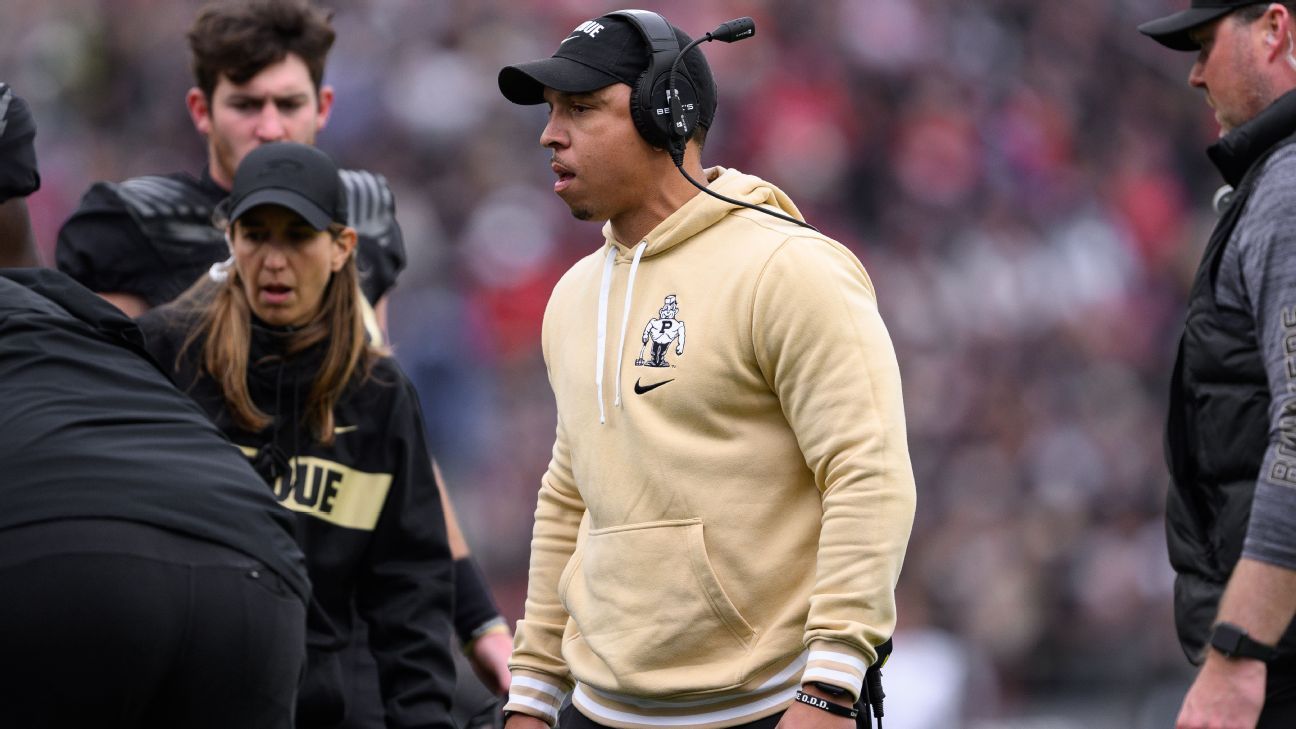
Purdue coach: Know Michigan was at our games
Purdue coach Ryan Walters said his staff has had to teach players new signals and that the team will operate differently when it visits Michigan on Saturday due to evidence of scouting by the Wolverines.
That dog mentality lol.Who the hell is not stealing signs? We should find out who is not stealing signs and then get them fired for slothfulness.
Kirby has every team in the NCAA signs mapped out.
It's just the Dawg in me!!!That dog mentality lol.
Who do you think is actually signaling in the play?
Sources say was right this time
Sources: Michigan football staffer center of scouting scheme
A low-level staffer with a military background has emerged as one of the linchpins in the NCAA investigation into Michigan's alleged sign-stealing operation, sources told ESPN.www.espn.com
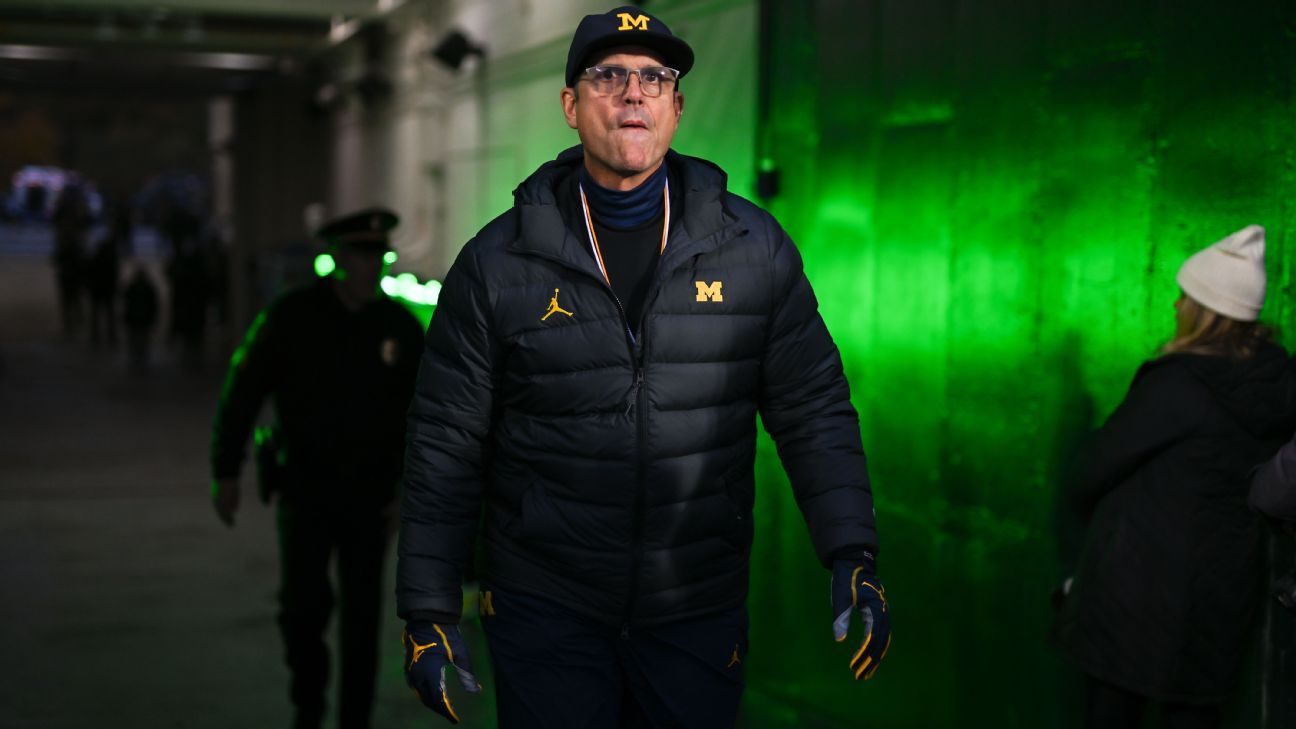
Big Ten informs Michigan discipline is a possibility
The Big Ten has formally notified Michigan that it could be facing disciplinary action from the league, a step required by the league's bylaws in the event it becomes clear that a school may face punishment.
Finebaum has said he believes Jim Harbaugh should be suspended indefinitely.
This post by Michigan alumnus and longtime journalist can’t be real
This post by Michigan alumnus and longtime journalist can’t be real
Finebaum has said he believes Jim Harbaugh should be suspended indefinitely.
This post by Michigan alumnus and longtime journalist can’t be real
It’s real.
If you go to the most popular UM board most of the posters think they are leaving the BIG for the SEC since the real criminals are the BIG schools that colluded to take them down. Harbaugh is a victim because he is just that good.
MGoBoard Forum | mgoblog
Support Free Speech
- Current cycle
- $1.00
- Total amount
- $623.00
